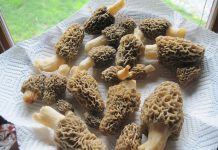A few weeks ago, my eighth grader casually mentioned that she was one of two representatives from her classroom in the school spelling bee. I made note of it just as casually (meaning: I didn’t). she didn’t mention it again, and I forgot about it.
Visiting with my brother in a booth after a late lunch in a local fast food establishment, a friend of my daughter and her mom sat down near us. “Were you at the spelling bee?” the mom asked me.
“No. Was that today?” I remarked. “Kathie wasn’t in it.”
“Yes, she was,” said the “with it” mom, “We just left there. You were allowed to take your kids home with you when they finished. I think your daughter placed sixth.”
My brother checked a customary loud guffaw he would have made over my ignorance thanks to the presence of the pretty, young mom, but he chuckled, waiting for me to figure out what happened.
Soon after, at home, I asked Kathie about the spelling bee. “Yeah,” she said, ” I’m the alternate in case one of the five finalists doesn’t show, but I’m supposed to go anyway.”
“How did I miss you studying for it?” I asked. “If I’d known, I would have helped you.”
“I didn’t study, but that’s what I was afraid of, that you’d make a big deal. No one wanted to be in it. Some kids missed words on purpose so they could go out. Some words are harder than others, so it’s mostly luck.”
In my mind, her scenario was printing on my “What’s the world coming to?” list. How had our school and these select students, or just the times in general, gone so off target? If only I could come up with a way to put some fun (and a little pride) into being in the spelling bee.
“I went out on ‘whelk’,” she said. “I don’t know what it means.” Then, Kathie revealed a booklet I hadn’t seen before, which should have helped her prepare. This was the first step toward the national spelling bee.
I wondered why she didn’t have whelk used in a sentence at the bee, and I reached for our thick dictionary saying “I associate it as a kind of seashell,” and, just as I thought, “A type of mollusk,” it read. Put that with measles, the word she missed in her third grade bee when she came in third. They are words she’ll always remember.
I scanned her booklet. The E.W. Scripps Company, headquartered in Cincinnati, Ohio, holds diverse operations in television networks and station groups, newspapers, and media licensing and syndication. Working with 230 newspapers around the world, it has sponsored the spelling bee since 1925.
The Scripps National Spelling Bee is “an educational program that is designed to help students improve their spelling, increase their vocabularies, learn concepts, and develop correct English usage that will help them all their lives.” The little book contains 26 categories with more than 4,100 words. Among them are those that the 2005 finalists missed: gamopetalous, keratinophilic, monogoneutic, phalacrosis, and tropholytic, just a few for us to look up.
Like every other day after school, Kathie informed me she’s starved; and I just finished lunch. Here was my solution. Refreshments are always a drawing card; maybe I should volunteer to serve some at next year’s spelling bee. Unless you’re counting calories, a little food never hurts.
Get 4 Weeks of Farm and Dairy Home Delivered












